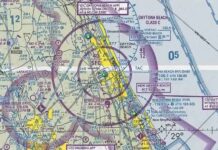
If the end of Year 7 is a sign of a child’s successful transition to High School, introducing them to a new educational system and the responsibility of taking initiative with their study habits, Year 8 undoubtedly allows them to develop the skills they’ve already acquired. However, there are no NAPLAN or any other significant assessments in Year 8, meaning they often have a more laid-back attitude towards learning and improving their skills and knowledge.
During this period it also gets more challenging for students to keep their interest and passion for classes like math and science. That makes it difficult for teachers to grab and maintain their students’ attention. As a science teacher, you must think of creative ways of rekindling pupils’ curiosity to overcome this obstacle. Here are some interesting tips and tricks to help you get your older students excited to return to science class.
What Do Year 8 Students Learn in Science in Australia?

Across Years 7 through 10, students learn about microscopic and atomic structures, how forces and fluxes of matter and energy form systems at various scales, and how to measure changes and relative amounts.
In Year 8, students are introduced to various scientific concepts through structured learning and experimentation. As a teacher, you must choose suitable Year 8 Science textbooks that include essential science curriculum and help your students understand the following:
Cells and Microscopic Structures
- Recognising that living systems’ macroscopic characteristics are explained by their cellular structures
- Connecting shape and function inside cells
- Investigating how the body’s systems are organised in terms of the material fluxes between its interdependent organs
Changes in Matter
- Investigating matter alterations at the particle level
- Distinguishing between chemical and physical changes
Energy Forms and Roles
- Classifying different forms of energy.
- Describing how energy affects systems and how it causes change
- Recognising the rock cycle’s use of heat and kinetic energy
Experimentation and Relationships
- Experimentation is used to determine the relationships between system components
- Explaining these relationships through increasingly complex representations
Prediction and Explanation
- Making predictions and proposing explanations
- Weighing opposing viewpoints and using data to support their own
How Can I Teach Science in an Interesting Way?

Using interactive teaching aids and technology to create more captivating learning experiences beyond traditional lecturing and connecting science to everyday life and potential career opportunities can make your science class more interesting and enjoyable. Here are a few ideas on how you can do that.
Choose Interactive Year 8 Science Textbooks
When selecting an interactive science textbook for your classroom, picking resources beyond traditional teaching methods that offer dynamic, comprehensive support for students and teachers is essential. Here’s what educators should consider when choosing the best interactive Year 8 science textbooks.
Comprehensive and Structured Learning
Guided Experimentation
Opt for textbooks that provide step-by-step guidance for writing scientific experiments, including templates, report requirements, and reflection tables. That can help students understand and follow scientific methods thoroughly.
Syllabus Alignment and Self-Assessment
Ensure the textbook covers all syllabus content comprehensively, with exercises and exam questions for regular self-assessment. Provided answers enable independent learning and reinforce key concepts.
Interactive Multimedia Features
Embedded Multimedia
Select books that integrate video clips and multimedia elements to enhance student engagement and understanding, making science more accessible and interesting.
Practical Investigations
Ensure the book includes practical investigations and tasks to encourage open-ended problem-solving, promoting critical thinking and creativity.
Digital Learning Platforms
Integrated Digital Tools
Choose textbooks with accompanying digital platforms that offer a seamless learning experience, combining theory, media, questions, and answers. Students can track their progress with the use of features like performance dashboards, instant feedback, and interactive activities.
Teacher Support and Consistent Marking
Look for resources that support teachers in reinforcing scientific reporting and experimentation steps. Consistent templates and guidelines simplify grading and maintain high academic standards across classes.
Conduct Experiments

Hands-on experiments are fun and help reinforce science concepts, making them more relatable and providing a deeper understanding of everyday life. They help students expand their problem-solving, collaboration and critical-thinking skills – essential for their overall development and better school results.
Incorporate Project-based Learning
Project-based learning allows students to actively participate in real-world situations and challenges. They allow them to take charge of their education when they select a science project that calls for investigation and experimentation. Designing and building an eco-friendly greenhouse, which involves research, prototyping, analysis, and reflection, is a great example. This project encourages students’ ingenuity, curiosity and interest in science.
Make Science Relevant and Real
Talking about different career paths in the field of science can pique older students’ curiosity and motivation. One way to do that is to invite guest speakers to share their experiences: when students hear directly from these professionals, science will appear more tangible for them. Other ways to make a real-world connection to science are to assign career-themed projects, such as designing a machine or a device for future physics engineers or arranging a field trip to a science-related workplace such as a technology company.
Create Immersive Experiences with Technology
Virtual lab simulations, augmented reality (AR), science-related podcasts and 3D printing are all fun ways to create more captivating learning occasions and make your science class more enjoyable. All are increasingly popular among students in secondary school, meaning the odds that they’ll get your students excited for your class are immense.















